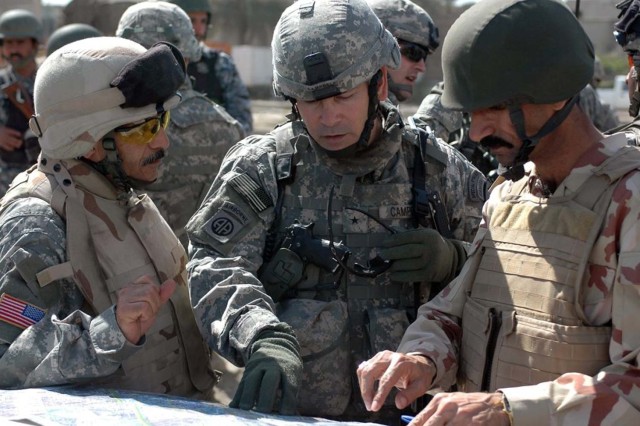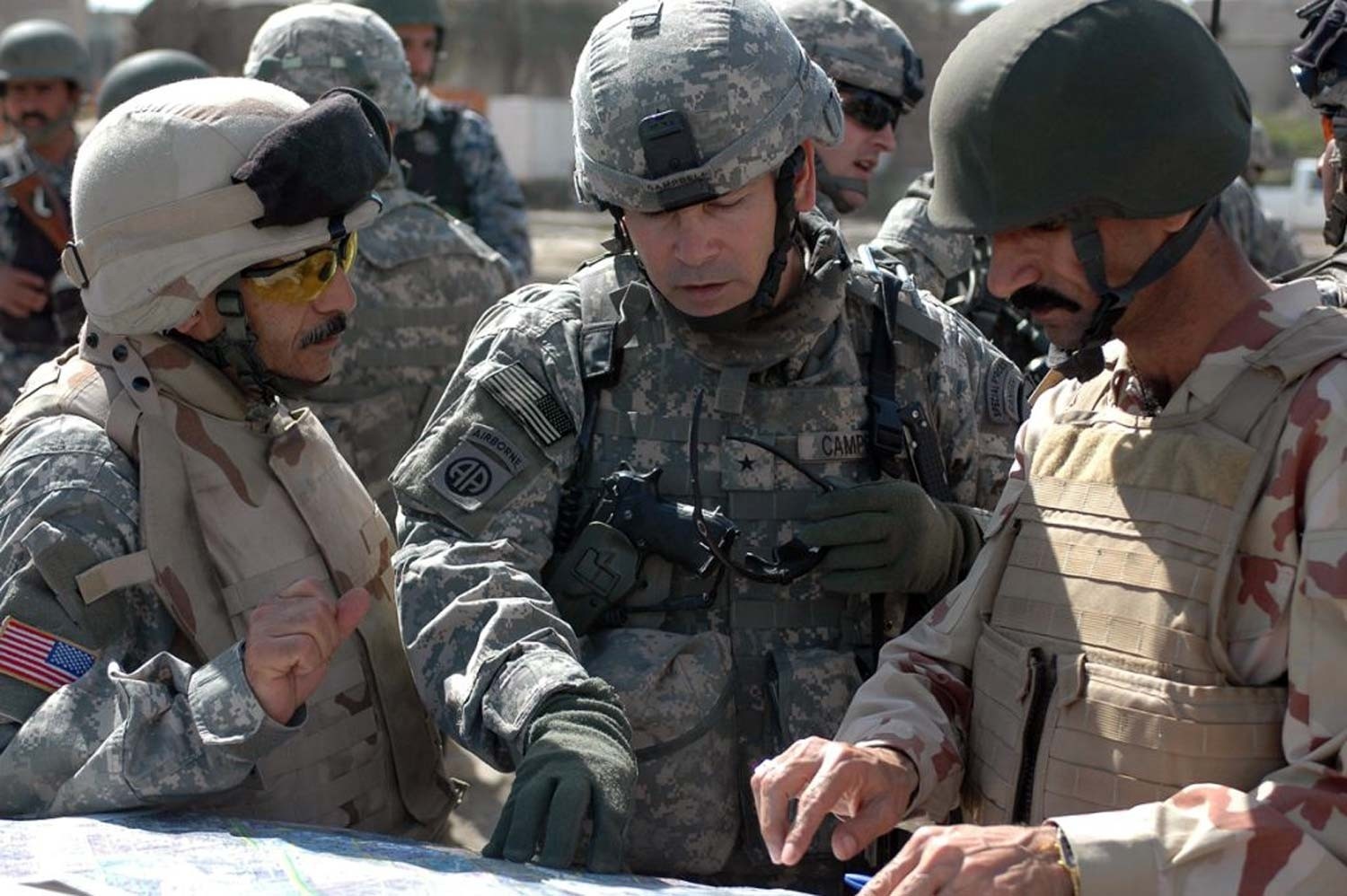WASHINGTON (American Forces Press Service, March 8, 2007) - A new strategy that puts U.S. and Iraqi forces inside Baghdad neighborhoods to safeguard residents against insurgent and sectarian violence can work, but it'll take time to be fully implemented, the top U.S. military commander in Iraq said in Baghdad during his first news conference today.
"We and our Iraqi partners recognize that improving security for the Iraqi people is the first step in rekindling hope," said Gen. David H. Petraeus, who became Multi-National Force - Iraq commander Feb. 10. "The upward spiral we all want begins with Iraqi and coalition forces working together and locating in the neighborhoods those forces must secure."
About 40 joint Iraqi-U.S. security posts have been established across Baghdad as part of the three-week-old Operation Law and Order, Petraeus said. Protecting the people, he noted, is an important component of counter-insurgency operational doctrine.
However, the operation "will take months, not days or weeks, to fully implement," Petraeus cautioned, noting it "will have to be sustained to achieve its desired effect."
Iraqi and coalition security forces are working in tandem during patrols throughout Baghdad and surrounding areas to locate and capture or kill insurgents, Petraeus said. Their efforts seem to bearing early fruit, he said, noting sectarian killings have been lower in Baghdad in recent weeks compared to the previous month. And, small numbers of Baghdad residents are returning to homes they'd abandoned to escape the violence, he added.
"Importantly, Iraqi and coalition forces will not just clear neighborhoods," Petraeus said. "They will also hold them to facilitate the 'build' phase of the operation and help Baghdad's residents realize aspirations beyond survival."
As Iraqi citizens feel safer, that will set conditions for the resumption and improvement of basic services, Petraeus said. The Iraqi government, he added, has budgeted billions of dollars for infrastructure improvements and capital investment.
"This is hugely important. Indeed, Iraqis have often ranked the provision of services ahead of security in importance," Petraeus said. "And, it is vital that the ministry representatives in the neighborhoods are able to provide for their constituents."
Additionally, a joint U.S. State Department/Defense Department initiative will double the number of Provincial Reconstruction Teams (PRT) in Iraq from 10 to 20, Petraeus announced, noting the PRTs will focus their efforts on Baghdad and al Anbar Province in western Iraq.
As security improves in Iraq commerce will return and local economies will grow, Petraeus said, noting that Iraqi leaders have drafted a new hydrocarbon law that calls for equitable distribution of the country's petroleum-derived wealth among its citizens.
"Each step in this process helps reinforce the desired momentum," the general said. "And, over time, the government and its ministries will be able to gain the population's confidence and support by demonstrating the capability to deliver."
Earlier this year, President Bush directed the deployment of more than 21,500 additional U.S. Soldiers and Marines to Baghdad and restive areas of western Iraq to deter rising sectarian and insurgent violence. A tragic example of this violence was the Feb. 22, 2006, bombing of a holy mosque in the Iraqi city of Samarra.
"It is not in our power to turn back the clock to the day before" the mosque was bombed, Petraeus acknowledged. However, he said, it's possible to work with the Iraqis to help improve security to enable them to contain the sectarian violence that's torn at the country's societal fabric over the past year.
"Indeed, our operations will endeavor to provide Iraq's citizens and leaders a chance to mend that fabric," Petraeus said. "If we can do this, and I do believe that Iraqi and coalition Soldiers and police will be able to improve levels of security for the Iraqi population, then the Iraqi government will have the chance it needs to resolve some of the difficult issues it faces."
Meanwhile, the build up of U.S. and Iraqi security forces continues, Petraeus said, noting that the last of the 21,500 troops constituting the original "surge" directed by the president should arrive in Iraq by early June. An additional 2,200 military police announced yesterday by Secretary of Defense Robert M. Gates should arrive in a few months, the general said.


Social Sharing